Facts About Decaf Coffee
"Death before decaf" we often hear sung out loud in the world of coffee! But in our opinion, this just isn't true! There are a lot of misconceptions about decaf coffee and we are here to debunk them!
For starters, you would assume that it doesn’t have any caffeine in it, wrong! Or you may assume it is lower quality, wrong again!
In this article, we take a look at decaf coffee and the 9 most interesting (and surprising facts) about decaf coffee that you may not have known.
First of all, what is decaf coffee?
Decaf coffee, short for decaffeinated coffee, is a type of coffee that has had most of its caffeine removed. It is designed for individuals who want to enjoy the taste and ritual of coffee without the stimulating effects of caffeine. The decaffeination process typically removes about 97-99% of the caffeine content from the coffee beans.
Here are the key points to know about decaf coffee:
-
Decaffeination Process: Decaffeination is the process of removing caffeine from coffee beans. Various methods are employed, including solvent-based methods (using chemicals like methylene chloride or ethyl acetate), water-based methods (such as the Swiss Water Process), and the use of carbon dioxide (CO2) as a solvent. The goal is to extract caffeine while retaining the flavour compounds that contribute to the taste of coffee
- Caffeine Content: While decaf coffee is not entirely caffeine-free, it contains a significantly reduced amount of caffeine compared to regular coffee. On average, an 8-ounce cup of decaf coffee may contain anywhere from 1 to 5 milligrams of caffeine, whereas a regular cup of coffee can have 70-140 milligrams or more.
- Flavour and Aroma:The decaffeination process can alter the flavour profile of coffee to some extent. Advances in decaffeination technology aim to minimise these flavour changes, and many people find that modern decaf coffees closely resemble their caffeinated counterparts.
- Types of Decaf Coffee: Decaf coffee is available in various forms, including whole beans, ground coffee, and instant coffee. It comes in a range of roasts, blends, and single-origin options, providing a variety for consumers to choose from.
- Decaf for Different Brewing Methods: Decaf coffee can be used in various brewing methods, such as drip coffee makers, espresso machines, French presses, pour-over setups, and more. The choice of decaf coffee depends on personal preferences and the preferred brewing method.
Reasons for Choosing Decaf: Individuals choose decaf coffee for various reasons, including sensitivity to caffeine, health concerns, pregnancy, or the desire to enjoy coffee in the evening without the potential impact on sleep.
Labelling: When purchasing decaf coffee, you may notice labels indicating the decaffeination method used. This information can provide insights into the flavour profile and potential residual chemicals from the decaffeination process.
It's important to note that decaf coffee is not universally loved by coffee enthusiasts, and opinions on its taste can vary. However, for those looking to reduce their caffeine intake or avoid it altogether, decaf coffee offers a satisfying alternative.
How is the "caf' removed from coffee?
There are several methods for decaffeinating coffee, each with its own set of advantages and potential flavour impacts. Here are some common decaffeination methods:
-
Solvent-Based Methods:
- Methylene Chloride Method: Coffee beans are steamed for a few hours, and then methylene chloride is applied to remove caffeine. The beans are then steamed again to ensure the removal of any remaining solvent. This method is efficient but has raised some concerns about the use of the chemical.
- Ethyl Acetate Method: Similar to the methylene chloride method but using ethyl acetate, a naturally occurring compound found in fruits. It is often referred to as the "natural" method, but it can also be synthetically produced.
-
Water-Based Methods:
- Swiss Water Process: This method uses water as a solvent to remove caffeine. The process involves soaking green coffee beans in hot water to extract the caffeine. The water is then passed through activated charcoal filters to trap the caffeine. The beans are returned to the water, and the process is repeated until the beans are decaffeinated. The Swiss Water Process is considered a more natural method as it doesn't involve the use of chemicals. This is the one we at RiSE opt for whenever we can.
- Carbon Dioxide (CO2) Method: In this method, carbon dioxide is used to extract caffeine. The coffee beans are soaked in water to allow the caffeine to dissolve. Then, pressurised CO2 is applied to remove the caffeine. This method is known for preserving the flavour compounds in the coffee well.
-
Triglyceride Process:
- This method uses triglycerides (fats or oils) to extract caffeine from green coffee beans. The triglycerides are derived from natural sources, and the process is considered more natural compared to solvent-based methods.
It's important to note that all decaffeination methods aim to remove as much caffeine as possible, while preserving the flavour compounds that contribute to the taste of the coffee. However, the methods can have different impacts on the flavour, aroma, and overall quality of the decaffeinated coffee. Some people may claim to detect differences in taste between decaf and regular coffee, though advancements in decaffeination technology strive to minimise these differences.
When choosing decaf coffee, you may encounter labels indicating the decaffeination method used, allowing you to select based on your preferences for flavour and concerns about the decaffeination process.
9 Facts about decaf that you may not have known:
1. Decaf coffee doesn't give you the jitters like caffeinated coffee can.
This is because decaf coffee has far less caffeine than regular coffee, although it still does have around 5% of the usual caffeine quantity. Caffeine itself is a stimulant, and too much of it can cause anxiety, restlessness, and even headaches. This can vary depending on individual tolerances, so make sure you drink what you feel comfortable with. Ben our founder can have 7 or 8 cups a day and still sleep at night. Which he puts down to his ADHD - read more here
2. Stay hydrated
Coffee is a diuretic, meaning that it causes the body to expel more fluid than it takes in which in turn can lead to dehydration. You may be surprised to hear that this isn’t the case with decaf coffee. This means that the fluid helps to rehydrate you without having the compounds present that cause dehydration.
3. There's no need to worry about over caffeinating yourself, but there is some caffeine in decaf
Decaf coffee has far less caffeine than regular coffee. In fact, most decaf coffees contain only 2 to 20 mg per cup, whereas regular coffee contains anywhere from 80mg to 300mg per cup, depending on the bean used.
4. Decaf is less addictive and still tastes great
You can still enjoy a delicious cup of coffee without worrying about the addictive nature of caffeine.
5. You don’t have to compromise on taste.
There are many decaffeination processes that do not strip away all the amazing flavours and aromas of the coffee beans.
The milder conditions of the process in terms of pressure and temperature help the coffee beans retain their original taste, richness, flavour, and aroma. That's the process that has been used for our very own decaf coffee beans, so you will never have to compromise for great taste!
6. Drinking decaf means you can sleep at night
Because of its lower caffeine content, decaf coffee is a popular choice for those who want to enjoy a cup of coffee in the evening without the potential impact on sleep.
7. Decaf has Lower Acidity
Decaf coffee is often perceived as having lower acidity than regular coffee. This can make it a more suitable option for individuals with acid sensitivity or stomach issues.
8. Decaf is suitable when pregnant.
Pregnant individuals are often advised to limit caffeine intake, and decaf coffee can be a suitable alternative for those who still want to enjoy the taste of coffee without the full caffeine content.
9. Decaf can help you regulate blood sugar levels and reduce your risk for type II diabetes.
In fact, one study showed that those who consumed decaf coffee on a regular basis were 67% less likely to develop type II diabetes than those who didn’t drink any coffee at all. This is because caffeine can increase blood sugar levels, but decaf coffee doesn’t contain high amounts of caffeine, so it won’t have this effect.
Decaf FAQs
Does decaf taste good?
Decaf coffee is equally as good as caffeinated speciality coffee. The only difference is that decaf undergoes a different process in order to remove the caffeine. That can result in a slightly milder flavour, but if you find a good decaf it will still have the same flavour profiles as other coffees from that region.
What's the best time of day to drink decaf coffee?
Anytime! Unless you are worried about how coffee affects your sleep you may choose to switch out your morning caffeine drink for a decaf alternative in the afternoon. We tend to switch to decaf around 1pm.
Is decaf coffee less caffeinated than regular coffee?
Yes, decaf coffee has less caffeine than regular black coffee. Decaf actually has about 3-5% caffeine compared to its caffeinated cousin.
What's the best way to make decaf coffee?
Decaf has the same qualities as caffeinated coffee and can brewed however you usually prefer, whether that is for V60, Cafetiere, or in your espresso machine.
Final Thoughts
Decaf is not to be sniffed at! Whether you want to drink it for medical purposes or just because you love a coffee in the late afternoon, you no longer have to sacrifice the quality and flavour!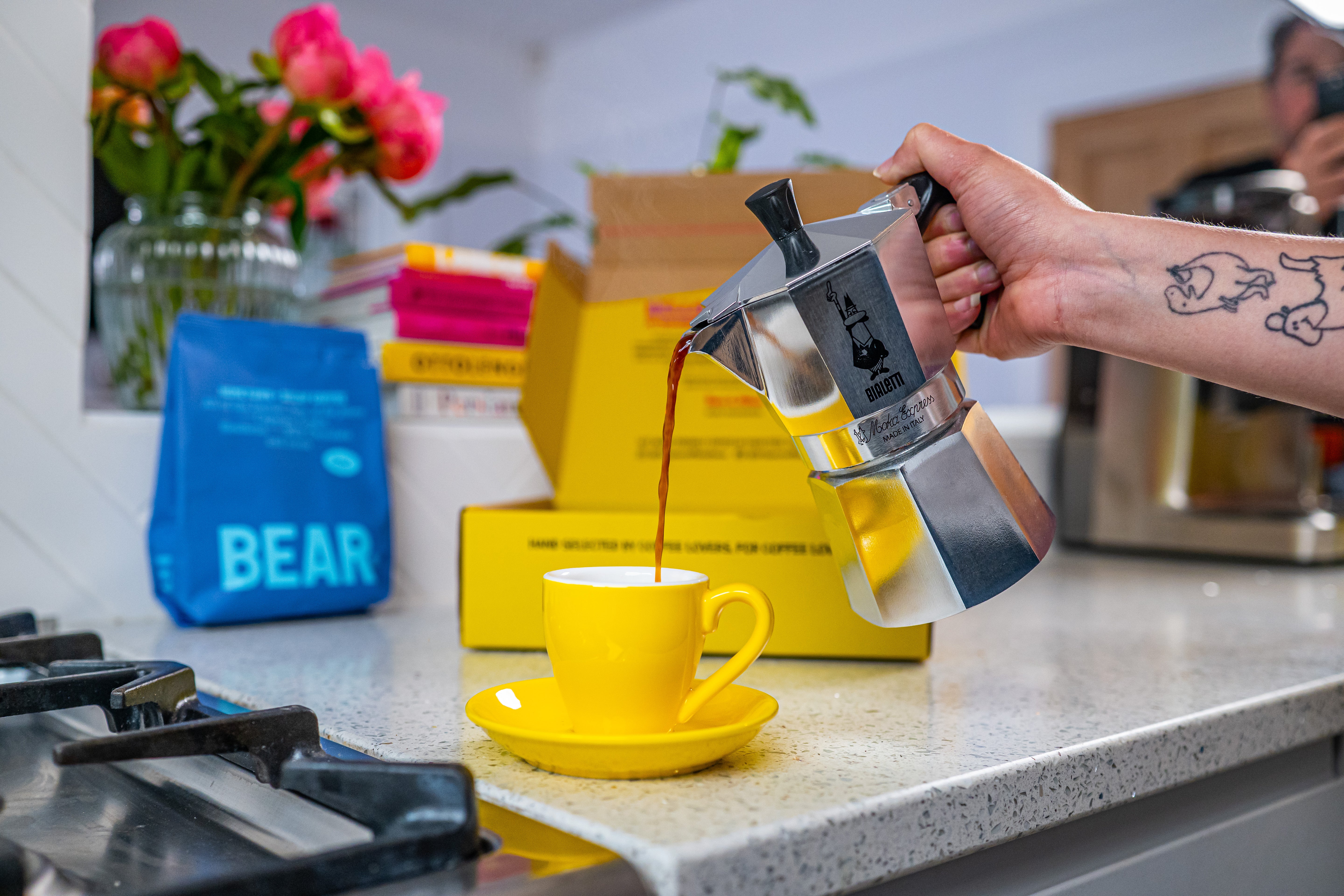
MONTHLY COFFEE DELIVERED TO YOUR DOOR
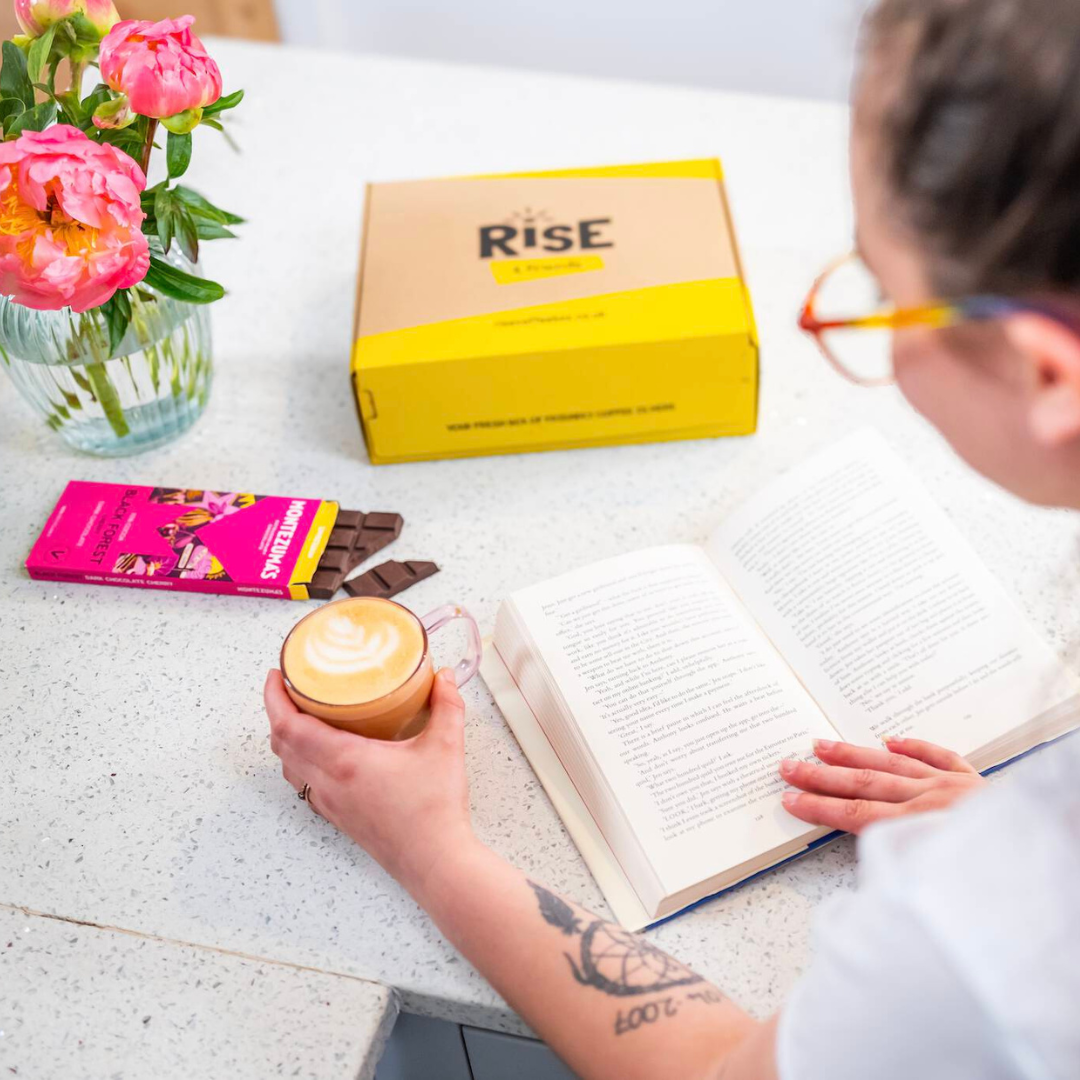








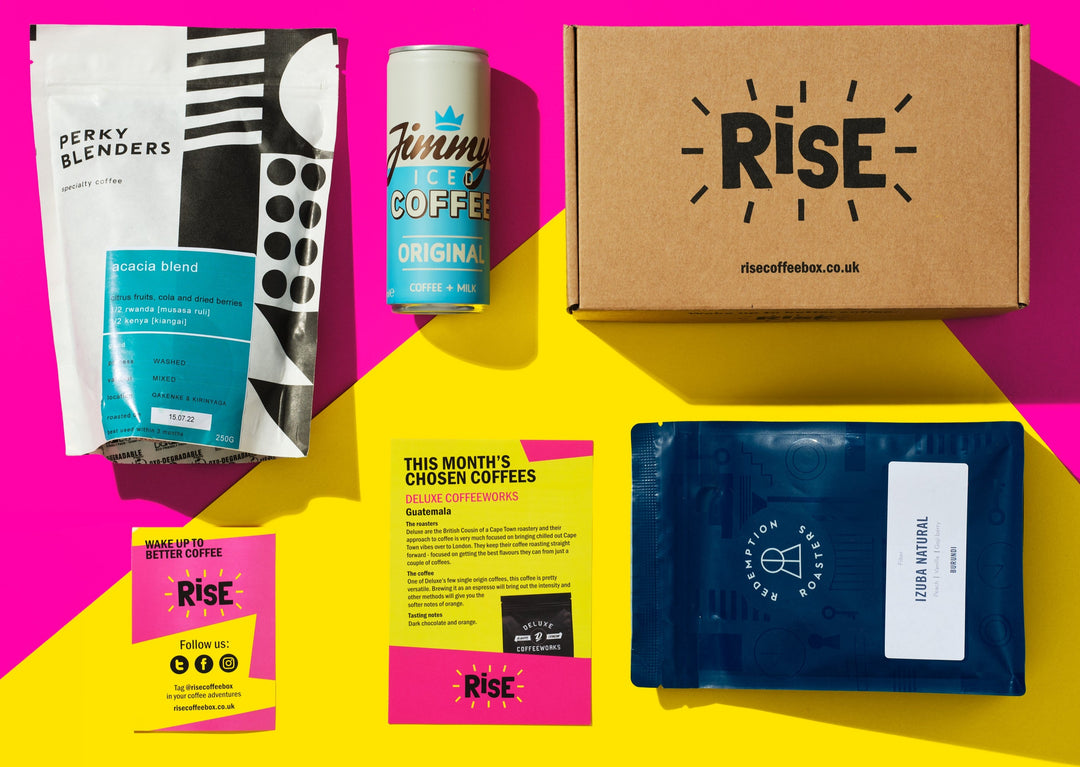
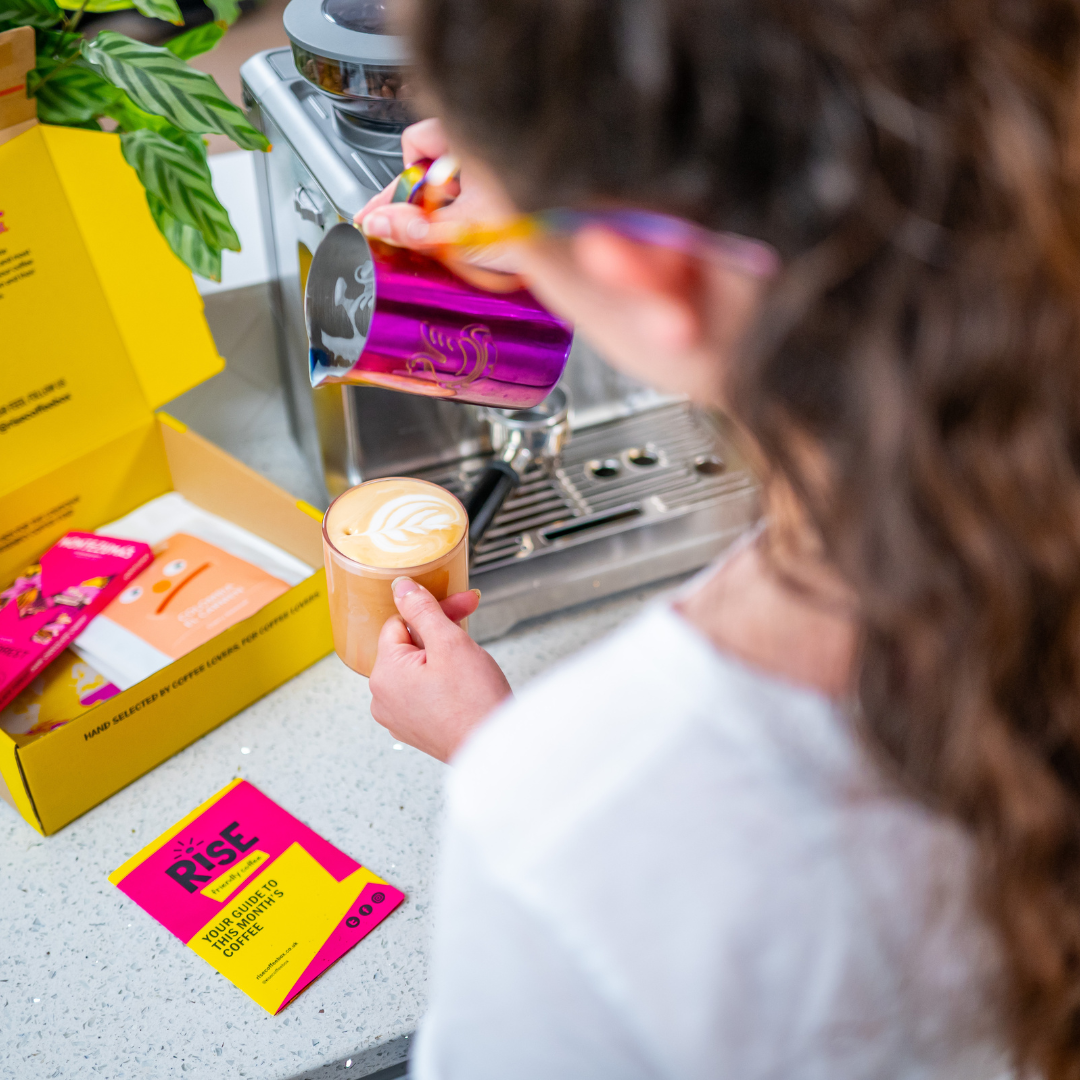
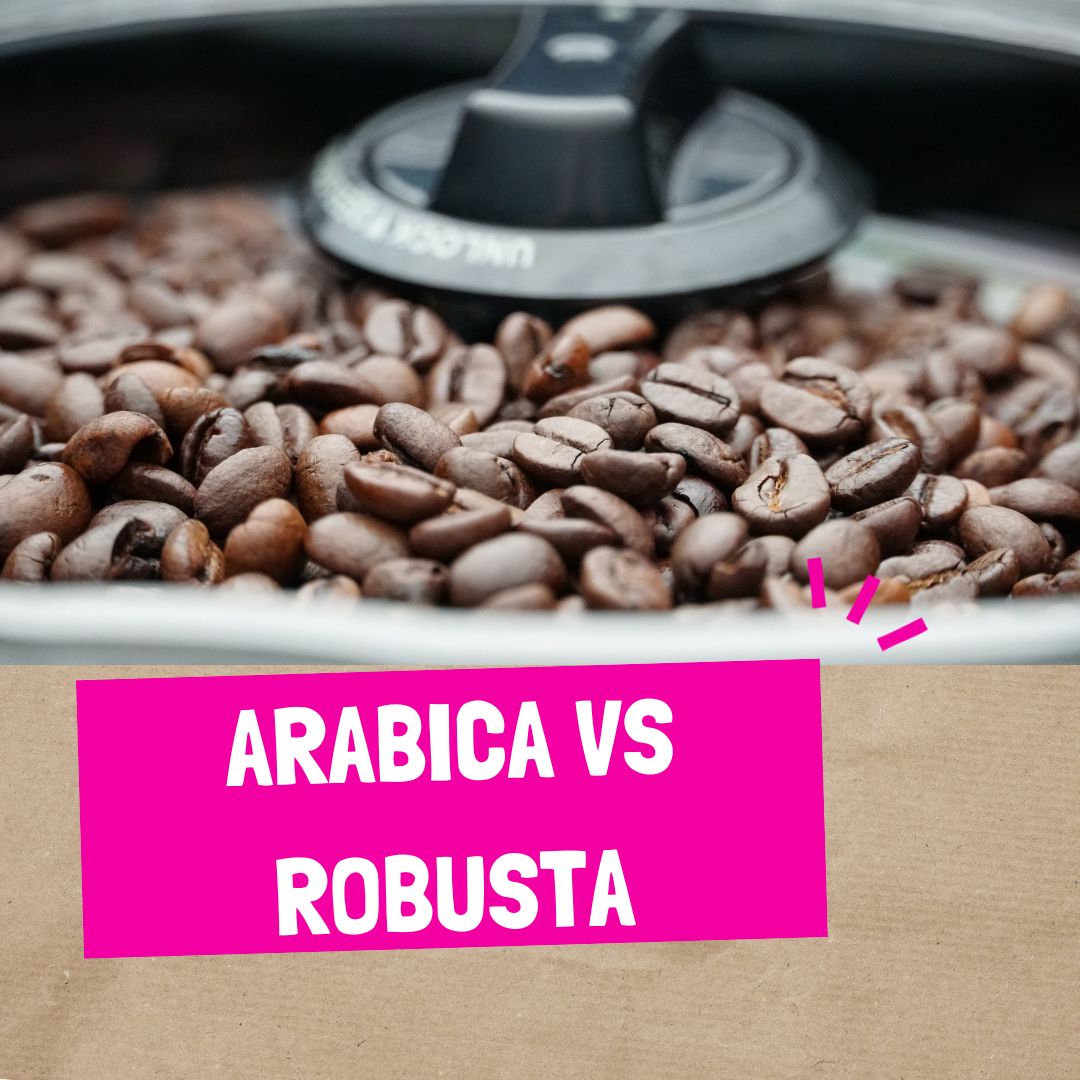


















Leave a comment